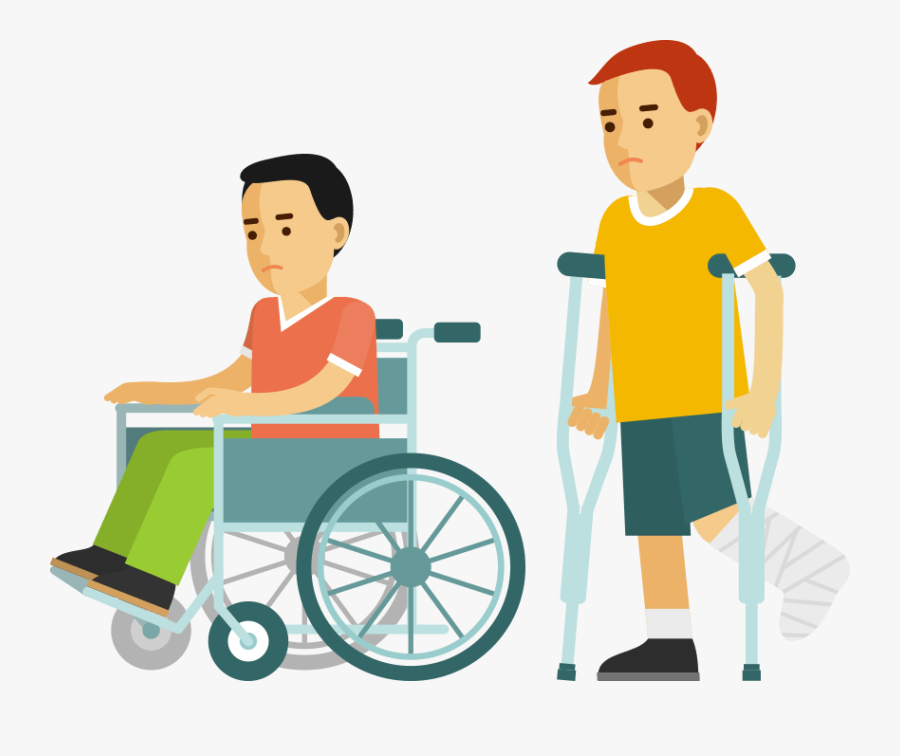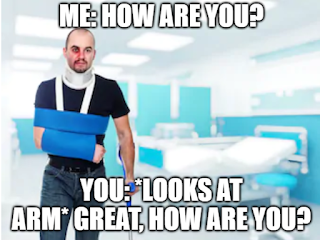Sejals Says, "The Portrayal of Disability In the Media Is In Desperate Need Of Change"
As we learned about in class, disability is often absent from advertising, invisible except for when it speaks specifically about disability. As Mairs examined, rarely do ads show disabled people doing everyday activities such as cooking, working or household chores. So what are the barriers and how can they be overcome? The key is seeing people as individuals and without labels. But sadly this isn't always the case. As we saw in the video in class, many people gave dirty looks at the deformed models as it didn't fit the status quo.

That’s honestly disappointing. This perception of disability must change. Whenever the topic of disability arises, I always think about my grandpa's brother, Diwakar. When I was younger and I visited India for the first time, I met my grandpa's brother who lost both of his legs when he served in the Indian Military. The concept of disability bewildered me as it was an aspect of life that I had not been introduced to until then. It was definitely a shock at first but to this day, I have not met another person as funny, kind, or hardworking as Diwakar. That is just a testament to the idea that disabled people are simply people who either got into unfortunate accidents or grew up with a disability- they are still normal people. Or as Mairs eloquently put it, everyone is considered a "TAP, or Temporarily Abled Person, that can join the minority [disabled people] involuntarily".
In order to change perceptions and have progression in our society, we have to represent and reflect society as much as possible. We can't just ignorantly allow this problem to exist, we have to do something about it. One of the most influential things Diwakar would ask me was "Do you know what I see in the mirror? Someone who loves you". He would tell this to me without fail because he never wanted to complain about his disability or let it slow him down. He knew that it was not something he could change and he was proud of his disability- as he should be. I aspire to live my life as fully as he lived his. He sadly passed away a couple years ago but he will also be a role model for me and inspire me to live my life in the present and be more accepting of disabled people and do my part in diversifying society to accept disabled people, in the media or elsewhere.

I agree that we have to reflect society more to normalize things such as disability, but even in the video shown in class, their attempt to bring disabilities into the light of society didn't work, people gave the mannequins weird looks and mocked it. Something important I think more people should consider is the idea of TAPs, which is something that removes some of the boundaries between those disabled and those not, because eventually anyone can become disabled.
ReplyDelete"Do you know what I see in the mirror? Someone who loves you."
ReplyDeleteThis– this is just so wholesome and sweet. Thank you for sharing your story about your grandpa's brother. I loved that you connected this topic with someone you knew. I definitely agree that the world should change their views on disabilities because being disabled was not a choice. Hopefully in the future, more people will start accepting disabled people.
I also believe that we as a society should try to be more accepting towards disabled people in our daily lives and in mainstream media today. I like how you were able to connect one of your own personal experiences towards this topic in a very meaningful way. The story was very inspiring and i hope it will be to many others also trying to learn more about this subject.
ReplyDelete